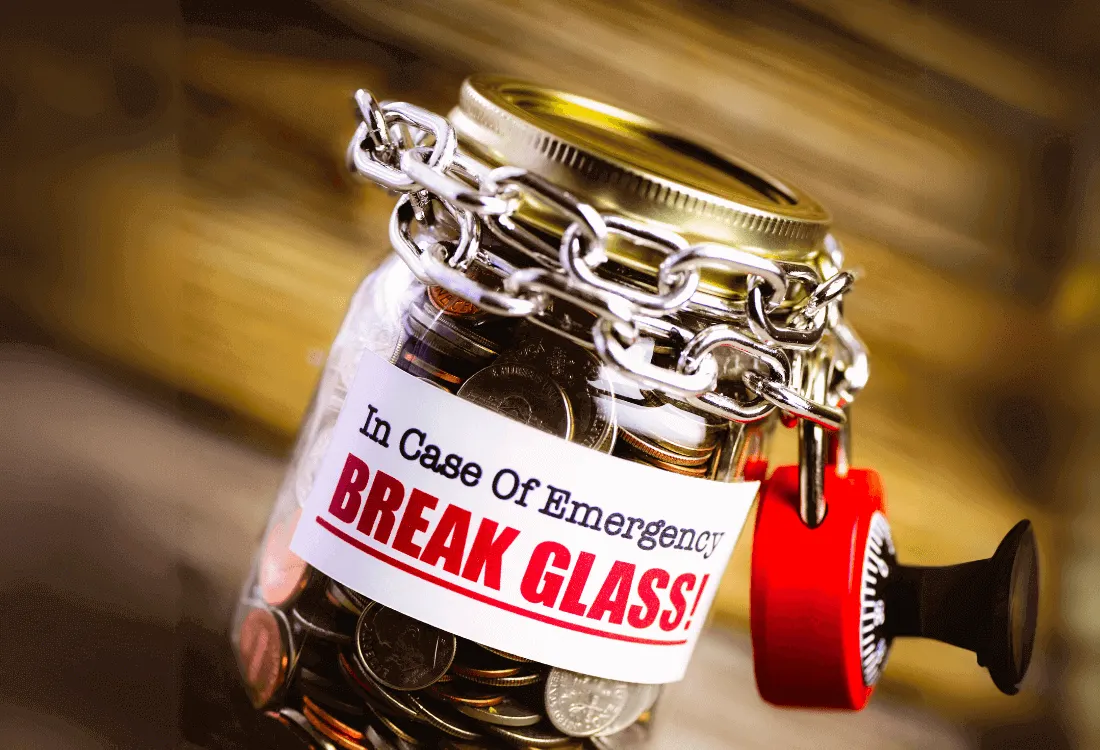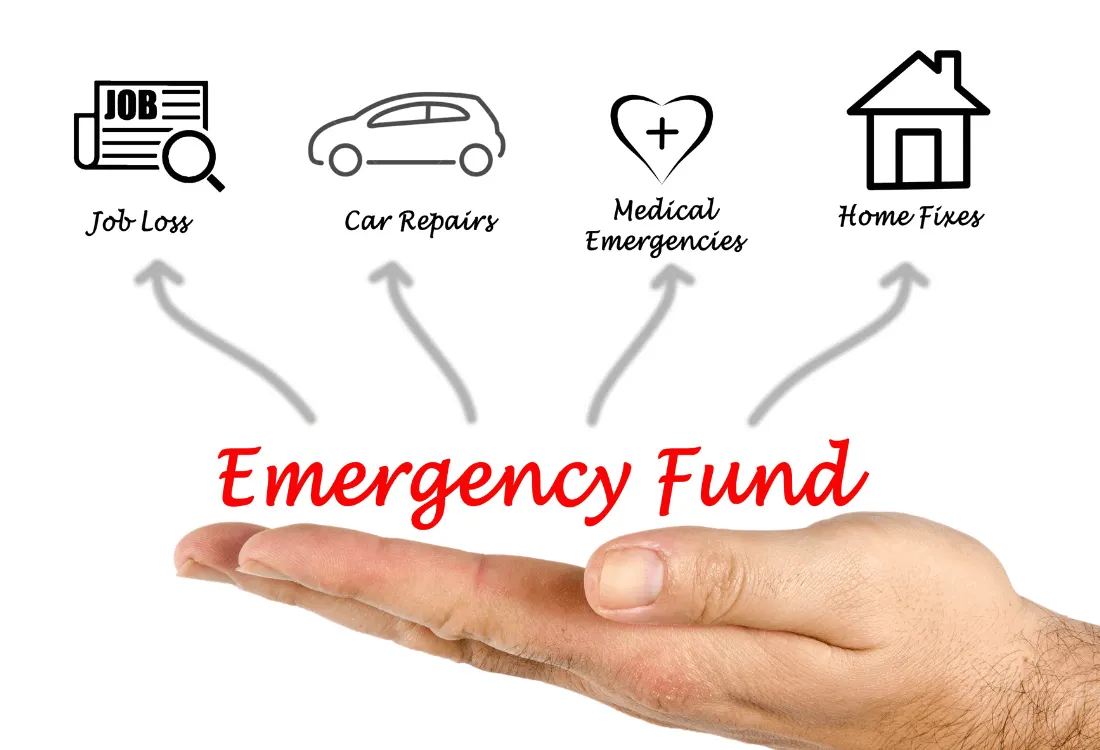Why You Need an Emergency Fund and How to Build One Fast
You’re not prepared. That’s where an emergency fund comes in—a financial safety net designed to help you navigate life's uncertainties without derailing your long-term financial goals.
An emergency fund is a dedicated savings reserve designed to cover unexpected financial shocks, such as medical emergencies, job loss, or urgent home repairs, without relying on credit or disrupting long-term investments. It acts as a financial buffer that provides stability and peace of mind, ensuring that sudden expenses don’t lead to debt or financial hardship.

Ideally, an emergency fund should be easily accessible, typically stored in a high-yield savings account, and should cover three to six months’ worth of essential expenses to offer true financial security.
But why exactly do you need one, and how can you build it quickly?
Why You Need an Emergency Fund
1. Financial Security During Uncertainty
Emergencies are inevitable. Whether it’s an unexpected medical bill, a major home repair, or an economic downturn, an emergency fund acts as a cushion that prevents you from falling into debt or financial hardship.
2. Avoiding High-Interest Debt
Without an emergency fund, you may be forced to rely on credit cards or personal loans to cover unexpected expenses. High-interest debt can quickly spiral out of control, making financial recovery much more challenging.
3. Peace of Mind
Knowing you have money set aside for emergencies reduces stress and anxiety. Instead of worrying about what might happen, you can focus on your career, relationships, and personal goals with confidence.

4. Protection Against Job Loss
Losing a job can be financially devastating, but an emergency fund can provide temporary relief while you search for new employment. Experts recommend having at least three to six months’ worth of expenses saved to cover essential costs during a period of unemployment.
5. Preventing Disruptions to Long-Term Financial Goals
Dipping into your retirement savings or investment accounts during an emergency can set you back years. An emergency fund ensures that you don’t have to derail your long-term financial plans when unexpected expenses arise.
How to Build an Emergency Fund Fast
1. Set a Realistic Goal
Start small if necessary. Aim for at least $500 to $1,000 as a beginner goal, then gradually work towards three to six months’ worth of living expenses. The key is to start saving something rather than waiting for the perfect time.
2. Automate Your Savings
Set up automatic transfers to your emergency fund. Even if it’s just $10 or $20 per paycheck, automating savings ensures consistency and removes the temptation to spend.
3. Cut Unnecessary Expenses
Review your budget and identify areas where you can cut back. Consider canceling unused subscriptions, reducing dining-out expenses, and switching to a more budget-friendly phone or internet plan.
4. Use Windfalls Wisely
Tax refunds, bonuses, and unexpected financial windfalls are great opportunities to boost your emergency fund. Instead of splurging, allocate a portion or all of it to savings.

5. Earn Extra Income
Side hustles like freelancing, selling unused items, or taking on a part-time gig can help accelerate your savings. Every extra dollar you earn can be a step closer to financial security.
6. Utilize Cash-Back and Reward Programs
Use cash-back credit cards (responsibly), rebate apps, and loyalty programs to earn extra money on everyday purchases. Transfer any rewards earned directly into your emergency savings.
7. Keep Your Emergency Fund Separate
Store your emergency savings in a high-yield savings account to ensure accessibility while earning interest. Keeping it separate from your checking account helps prevent impulsive spending.

Emergency Fund Versus Investing
Investing is a powerful tool for building wealth, but before diving into stocks, real estate, or other investment opportunities, it's crucial to establish a solid emergency fund. An emergency fund serves as a financial safety net, ensuring that unexpected expenses don’t force you to sell investments prematurely or accumulate high-interest debt.
Here’s why prioritizing an emergency fund is essential before investing:
- Protects Your Investments from Market Volatility
The stock market is unpredictable, with frequent fluctuations that can impact your portfolio’s value. Without an emergency fund, you may be forced to sell assets at a loss to cover unexpected expenses. A well-funded emergency reserve prevents you from liquidating investments during downturns, allowing you to stay invested for long-term gains.
- Prevents High-Interest Debt Accumulation
Life is full of unexpected costs—medical bills, car repairs, or sudden job loss. If you don’t have an emergency fund, you may rely on credit cards or loans to cover these expenses, leading to high-interest debt. An emergency fund provides a cash buffer, preventing unnecessary borrowing and helping you maintain financial stability.

- Ensures Financial Flexibility and Peace of Mind
Knowing you have three to six months’ worth of expenses saved allows you to take calculated investment risks without constant financial stress. It provides a sense of security, enabling you to focus on long-term investment strategies rather than short-term financial emergencies.
- Allows for Strategic Investing Instead of Panic Selling
Investments should be made with a long-term perspective. If you invest without an emergency fund, any financial crisis could force you to sell assets quickly, potentially at a loss. A strong emergency fund ensures you can keep your investments intact, maximizing potential returns.
- Strengthens Your Financial Foundation
Building wealth is a journey, and a stable foundation is key. An emergency fund is the cornerstone of financial security, ensuring that you’re prepared for life’s uncertainties while allowing your investments to grow undisturbed.
Conclusion
An emergency fund is an essential financial tool that provides stability, security, and peace of mind. By taking small, intentional steps, you can build an emergency fund quickly and prepare yourself for life’s unexpected twists and turns.
Start today—the best time to save for an emergency is before one happens.
I have a question for you -- have you saved enough emergency fund for emergencies?
